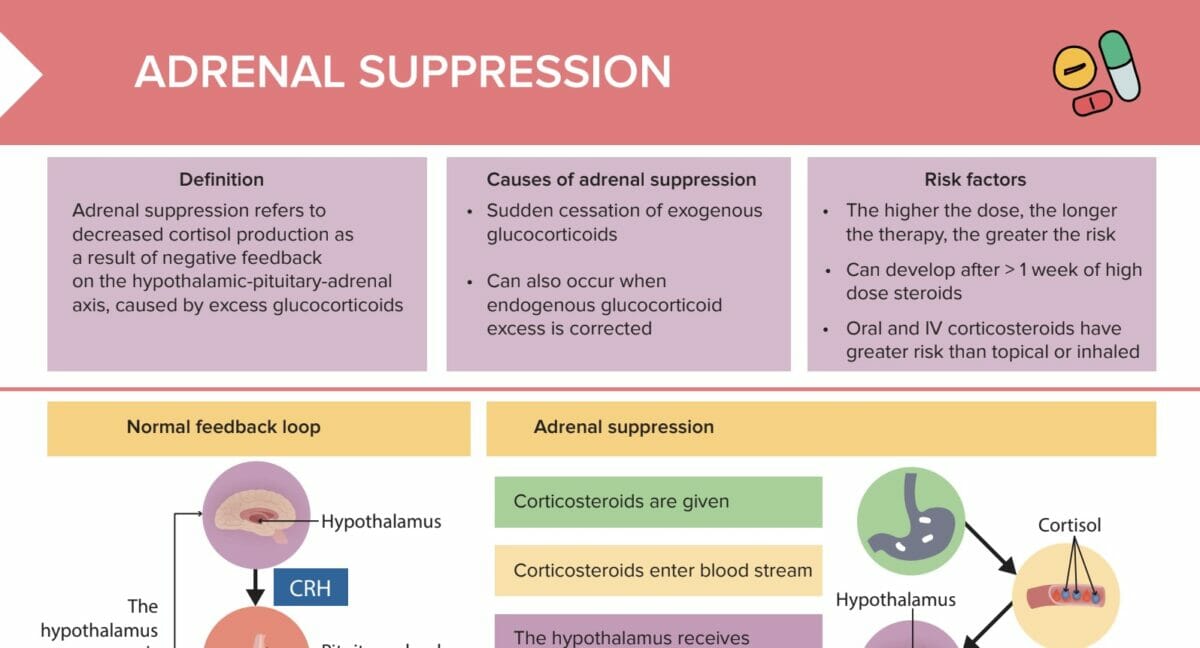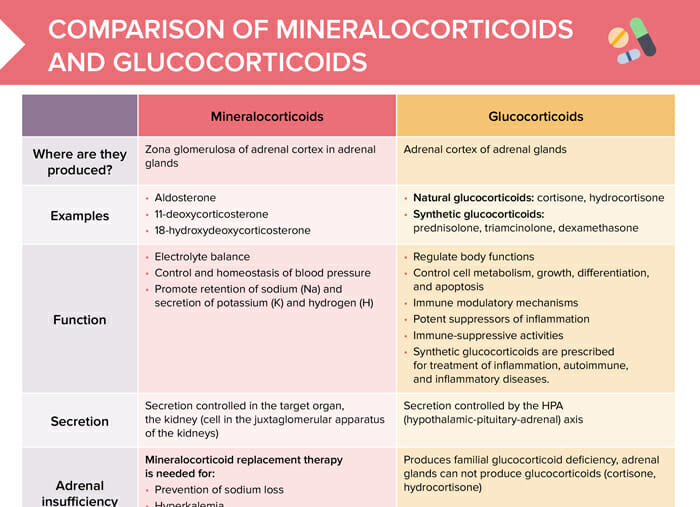What are mineralocorticoids?
Mineralocorticoids are hormones that play an important role in regulating fluid balance and blood pressure by regulating water and electrolyte balance in the body, mainly by promoting sodium retention and potassium excretion in the kidneys.
What are glucocorticoids?
Glucocorticoids are hormones that regulate metabolism, inflammation, and immune responses.
Glucocorticoids vs mineralocorticoids: What are the main differences?
Both glucocorticoids and mineralocorticoids are hormones produced by the adrenal cortex.
Table: Glucocorticoids vs mineralocorticoids
| Glucocorticoids | Mineralocorticoids | |
| Primary hormone | Cortisol | Aldosterone |
| Main function | Regulation of body functions and cell metabolism, immune system, inflammation suppression | Electrolyte balance, blood pressure regulation, sodium retention/potassium and hydrogen secretion |
| Uses | Treatment of inflammation, autoimmune/inflammatory diseases | Mineralocorticoid replacement therapy needed in adrenal insufficiency for: prevention of sodium loss, hyperkalemia, intravascular volume depletion |
What are the functions of mineralocorticoids?
Mineralocorticoids promote retention of sodium and secretion of potassium and hydrogen, and help to maintain electrolyte balance and blood pressure.
What are the functions of glucocorticoids?
Glucocorticoids regulate body functions, control cell metabolism, growth, differentiation, and apoptosis, and have immune modulatory mechanisms. They are also potent suppressors of inflammation and immune-suppressive activities.
What are some examples of mineralocorticoids?
Examples of mineralocorticoids include aldosterone, 11-deoxycorticosterone, and 18-hydroxydeoxycorticosterone.
What are some examples of glucocorticoids?
Natural glucocorticoids
Natural glucocorticoids include cortisone and hydrocortisone.
Synthetic glucocorticoids
Examples of synthetic glucocorticoids include prednisolone, triamcinolone, and dexamethasone.
What is mineralocorticoid replacement therapy used for?
Mineralocorticoid replacement therapy is used to prevent sodium loss, hyperkalemia, and intravascular volume depletion.
What is glucocorticoid replacement therapy used for?
Glucocorticoid replacement therapy is used to treat inflammation, autoimmune, and inflammatory diseases.
What is adrenal insufficiency?
Adrenal insufficiency is a condition in which the adrenal glands do not produce enough hormones, including mineralocorticoids and glucocorticoids. Symptoms of adrenal insufficiency caused by mineralocorticoid deficiency include muscle weakness, weight loss, loss of appetite, abdominal pain, chronic fatigue, nausea, vomiting, and diarrhea, hypotension and orthostatic hypotension, depression and irritability, hypoglycemia, joint pain, salty foods cravings, and irregular menstrual period and loss of libido.

